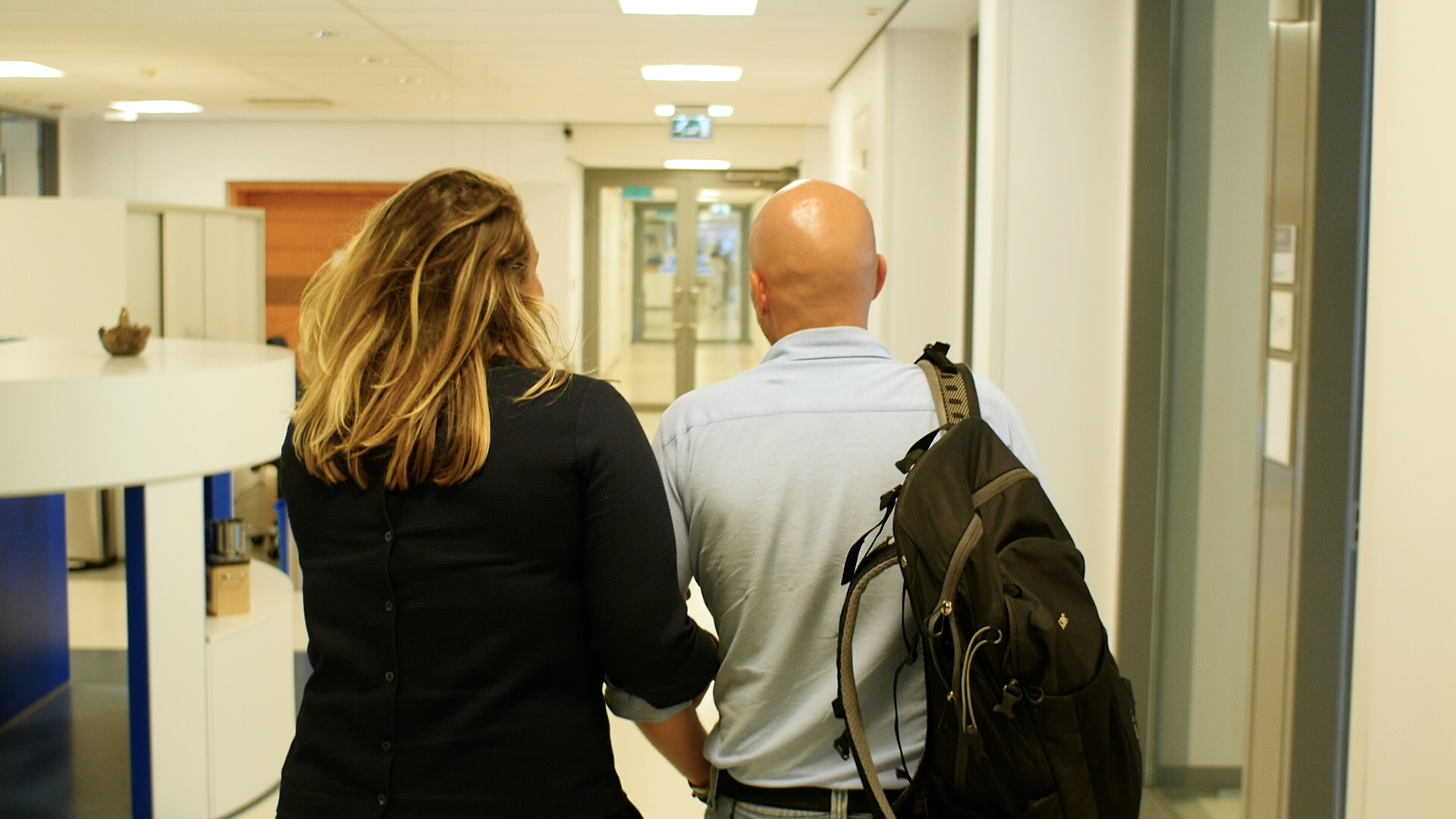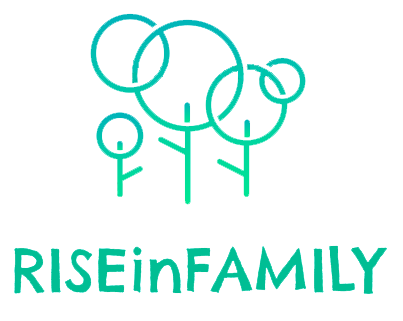When is your child ready to go home?
Your child can go home when you can give the care that your baby needs yourself. Generally, this means that your child does not need breathing support or monitoring anymore, and that he can keep himself at the right temperature in bed, can drink enough by himself and is growing well. In premature or SGA children this is often between 36-40 weeks and with a weight from 1800-2000 grams. These boundaries can vary between hospitals
Going home with support
In some cases, it is possible to learn how to give tube feeding so that you can go home with your child with tube feeding. At home your child can learn how to drink more by himself at his own pace until the tube is no longer necessary (also see the article “Learning how to drink”). You do not need to insert the tube yourself, but will get help from a special home care team. The paediatrician will guide you with feeding in the outpatient clinic. Sometimes it is necessary that a child goes home with oxygen and so also with monitoring. This will of course be discussed with you as parents beforehand. You will also be guided by a paediatrician when the oxygen therapy is phased out.
Information on discharge
Before discharge the nurse will give you information about feeding, the use of medication, treatment, and instructions for at home. Usually there will be a discharge consultation with the doctor and the nurse before discharge.
Follow up
Depending on the department advice, a follow up plan will be set up for your baby. This can be a special follow up consultation in the outpatient clinic, a regular consultation with the paediatrician or regular check-ups at the child health clinic.
Farewell to the hospital
Often you look forward to going home with your child, but you can also feel uncertain about it. It is nice to have your child home, but every now and then you might miss the doctors’ and nurses’ support. Sometimes there are certain considerations that need to be taken into account. It is very well possible that you will have questions about your baby when you are home, especially in the beginning. Make sure that once you leave the hospital you arrange who you can call if you are worried. For instance, this can be the Child Healthcare nurse or the Department of Neonatology. Please inform Child Healthcare that your child is home. The child healthcare medical specialist and nurses can help you with questions about your child.
Do not forget the support from your family and friends. Be clear to them. Indicate what kind of help you would like and what you expect of them. Maybe you are still entitled to postponed maternity care; ask your health insurance company about this.
At home
After coming home from hospital many parents feel they have to get to know their child again. That is not odd, your child still has to get used to being at home. At the same time your child gets more and more curious about everything around him.
The brain of premature, SGA and ill children cannot always handle too much stimulation. Such overstimulation can come from outside, but also from within your child himself. Overstimulation from outside can be, for example, the sounds of other people in the house, the radio or TV, or going for a walk outdoors. Overstimulation from within your child can, for example, be hunger, tummy cramps and other discomforts. These ‘ordinary’ stimuli can be overwhelming for your child. You notice this because your child is more easily startled, is more difficult to comfort or sleeps more. It is logical that it makes you feel uncertain about if you are doing everything right.
Sudden Infant Death Syndrom (SIDS)
Sometimes babies die unexpectedly in their sleep even though they had seemed healthy. This is known as cot death and is also called Sudden Infant Death Syndrome (SIDS). There is still a lot unclear about the cause of cot death. However, a number of risk factors are known. Some factors cannot be changed, but others can. The factors we can influence are,:
Processing your own emotions
Once you are home and the first period of getting used to this new life together is behind you, many people around you will think that “everything is okay now”. But many parents also notice that after being home for two or three months they are only just able to process what they have gone through in the past weeks and months. They feel sad or out of sorts in another way. The people around them do not seem to understand that easily, but that is quite normal. You stayed afloat when it was really necessary and now that there is some time and routine, you are able to look back and sometimes relive the anxious times very intensely. Partners can also have very different emotions during this period. If you do not succeed in understanding each other, you can ask for help. Give each other the chance to deal with it in their own way and deal with your memories in the way that suits you.
Network: What also can help you to keep going is using your network, like your family and close friends. Do not be afraid to ask for their help: usually they are glad to help. When someone else can babysit for a couple of hours, you can get some rest and relaxation. You can also use professional babysitting agencies. Some agencies also offer babysitters for at night. It was also an incredibly anxious time for your parents, your child’s grandparents. Apart from worrying about their grandchild, they also saw how hard it was for you. Undoubtedly, they wanted to help wherever they could – maybe an older child stayed with them – but they also had a feeling of powerlessness when seeing your child in an incubator. It is a relief for them too that their grandchild is home now. Talk together about what happened; that gives relief and support. Most grandparents like to visit as often as they can. It is good to arrange that from the beginning. You want them to have the space to bond with their grandchild, but as the parent you are in control. You know your child best.
The involvement of grandmothers and grandfathers and other family, such as brothers and sisters, or very close friends, can give you a feeling of really being supported. Sometimes it is hard to understand exactly what is useful and necessary and which things you prefer to do yourself (shopping, cooking dinner, etc.) Be clear about what you would like them to help with as they cannot guess. Then you will avoid any unnecessary tension between you.
When everything is back to normal and calm again, your older children will feel you are around more again. Usually, they will catch up on the time when they were extra quiet. Just like you as a parent are very tired from the last few weeks. It is good to regularly get some extra help. For instance, you can do something together with your older child and leave the baby with a babysitter.
Help: do you feel sad, anxious or unhappy in another way? Do not hesitate to contact your general practitioner for help. Asking for help is a sign of strength, and shows that you are trying to do the utmost for you and your family.It is not strange at all if you do not feel well after such an emotional period, you are not alone in this. For contact with other parents, you can also look at the patient association website for parents of incubator children.

Tips for at home
When your baby goes home, he is usually given 8, but sometimes 7 feeds. How much your baby needs to be fed will be discussed with you at discharge. Maybe in the hospital your baby has become used to being fed at set times. At home you can stick to those times or slowly adjust to your own daily routine. The child health clinic will give you further advice on feeding, unless otherwise agreed with you.
If your baby is breastfed, then in principle he can drink as much as he wishes, unless otherwise agreed with you. When your baby is satisfied, you know that your baby has been fed enough. Make sure your child wets about 4 nappies a day. In this way you are sure that your baby has been fed enough. A breastfed baby usually has soft baby poo. After a few weeks, the number of dirty nappies can vary from one in 6 days to 7 nappies a day. For as long as you give your baby only breastfeeding, or more than half of the time breastfeeding, you have to give your baby vitamin K and vitamin D every day.
If your baby gets formula feeding, then it is important to follow the instructions on the pack. The nutrition must be prepared per bottle. In the Netherlands tap water can be used. You can heat the bottles in a microwave, with a bottle warmer or in a bain-marie. The prepared formula feeding cannot be kept for longer than an hour. Always throw away what is left. Always check if the feed is at the right temperature, for instance, by dripping a drop of the formula on the inside of your wrist. Bottles and teats must be rinsed with cold water after use and after that they must be cleaned with hot water and washing-up liquid. Use a special brush for the inside of the bottle. Bottles and teats can be washed in the dishwasher. The advice is to wash or boil these once every 24 hours.
You can go for a walk with your baby outside. Even when it is colder, that is fine. Dress your child as usual (romper, baby grow, coat, and hat) and put your baby in a (if you like) pre-warmed pram. When there is a frost, put an extra blanket in the pram. Make sure that your baby does not get too hot. In summer make sure you protect your baby from the sun. After the walk, check your baby’s temperature an extra time.
The department of neonatology (and also homecare) advises that you let your baby sleep on its back. Turn his head to the left or right and alternate. For more information on “sleeping safely” go to this website
It is normal that your baby sometimes cries. Try to find out what is making him/her cry and take away the cause, if possible. Causes of crying:
- Hunger
- Dirty nappy.
- Being tired or overtired.
- Your baby needs to burb.
- After the feeding your baby has colic (tummy ache) (in this case, your child will cry loudly and persistently and seem stressed).
- Pain.
- Seeking contact/attention.
- He is out of sorts for some reason.
- Transition to another feeding routine.
- A day adjusting breastfeeding.
- A high or low temperature.
When your baby cries a lot, it is important not to get into a vicious circle: becoming increasingly tired, irritable and less able to tolerate things, causing your baby to cry even more. Try to come up with practical solutions, such as arranging a babysitter so that you can get a good sleep yourself, or sometimes spending the night apart. It can also help to keep a crying diary to create an overview for yourself.
If you think your baby is in pain, is crying abnormally often or loudly, or if the crying worries you, please contact your GP, paediatrician or the child health clinic. See also the article “Crying baby”.
Cardiopulmonary resuscitation
Basic cardiopulmonary resuscitation (CPR) or basic life support is the set of manoeuvres that allow us to identify if the child is in a situation of cardiorespiratory arrest (CRA) or at immediate risk of suffering it, and to act without specific equipment until the arrival of qualified personnel. In order to recognise an emergency situation, we must know the clinical warning signs:
- Low level of consciousness: no response to call or pain stimuli, such as a pinch on the cheek, or stimulation of the sole of the foot.
- Not breathing normally: breathing rate is too high or too low, signs of breathing fatigue or exhaustion, shallow breathing, or abnormal breath sounds such as stridor or wheezing.
- Impaired blood circulation (ineffective circulation): no reflexes (no coughing), no movement, extreme pallor or bluish discolouration of the skin and around the mouth.
In paediatric patients and more so in neonates, urgent and/or emergency situations usually originate from a respiratory problem in most cases. There is also the possibility of a circulatory or cardiac cause secondary to an illness of the baby or an accident.
Follow up
Outpatient check-ups with the paediatrician: The number of check-ups at the outpatient clinic can vary from none, a one-off check-up to more check-ups.Your baby will be seen by a specialist nurse or by the paediatrician in the outpatient clinic. You will also go to the child health clinic for checks.
Outpatient clinic for premature babies: In some hospitals, babies, who were born prematurely or whose birth weight was too low, can go to a special outpatient clinic for premature babies. This is often a combined consultation with the neonatologist, physiotherapist, speech therapist and a child healthcare nurse. Psychological aftercare may often be offered by the psychologist in the outpatient clinic, possibly in combination with different appointments at the premature babies’ clinic consultation hours.
Incubator aftercare: Usually parents of a newborn baby have the right to at least 24 hours of maternity care spread over eight days, depending on their health insurance. If your baby is in hospital these days, then you will not no longer be eligible for this. As a parent of a prematurely born baby or a baby who was hospitalised in the department of neonatology, you will miss this maternity care. Then you miss all the help and advice given by the maternity caregiver, which may just help you a little bit in establishing the best daily routine. It is also rather difficult to suddenly be alone or with the two of you after all that care in hospital. Most maternity centres offer postponed maternity care or incubator aftercare. A specialised maternity caregiver will then visit a few times to give information, advice and tips. She will come for a few hours (mostly 3 times 3 hours) to give tips and guidelines, so that after the period in hospital you can look after your baby with confidence at home. In hospital you already did a lot by yourself and you learned a lot, but at home it can be just a bit different. She can answer questions like: What is the most convenient place for the bath? Is the baby’s room too hot or too cold? How does breastfeeding fit into my daily routine? Some maternity centres do not have specialised maternity care givers. Then ask for someone with a lot of experience. But note: postponed maternity care is not included in basic healthcare insurance. You have to have additional insurance. So please check your insurance policy carefully to see if it is included and what is covered and what not. Of course, you can always call your insurance company to check.
Back to work
The weeks fly by and before you know it you are expected back at work. Since January 2015 maternity leave has been increased for mothers whose children were admitted to hospital after birth or during the period of the maternity leave. This is based on the principle that a mother must be able to spend ten weeks at home with her child after having been discharged from hospital. Your total maternity leave is normally sixteen weeks. If your child is born prematurely, you will get the weeks from before the due date, added on after the birth. If those extra weeks do not add up to ten weeks at home together, you are entitled to a maximum of ten weeks extra leave. The Employee Insurance Agency (UWV), however, does not include the first week, so that in practice it may turn out to be a maximum of nine extra weeks. It is good if your employer supports you in getting back to work. Often this can be in consultation with an occupational physician. Get in touch in time. If your occupational physician/employer works together with you to find a flexible solution, many frustrations can be avoided. If there were medical complications around your delivery, then the standard leave of absence is hardly enough time to recover. Inquire whether previously made arrangements about your return can be more flexible and if there are special leave of absence arrangements. The social worker can help you with this.
If you are self-employed, then the situation is different. If you do not work, you do not earn any money. But you do have the freedom to decide yourself if and how much you will work. Talk to your partner and other people around you to see how your business can continue for this period.
After the birth of their child, partners get a week of fully paid parental leave. You can take that leave immediately, but it is also allowed at any time in the four weeks after the birth. This Act also guarantees that partners can take an extra five weeks of parental leave in the first half year after their baby’s birth. In that period, you are entitled to 70% of your salary. If your child is in hospital for a longer period of time, this leave is naturally not enough. Then it is possible to apply for care leave.



